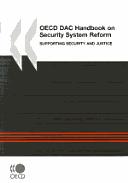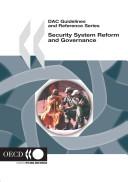| Listing 1 - 10 of 11 | << page >> |
Sort by
|
Book
Year: 1963 Volume: 11 Publisher: Basel : Verlag für Recht und Gesellschaft,
Abstract | Keywords | Export | Availability | Bookmark
 Loading...
Loading...Choose an application
- Reference Manager
- EndNote
- RefWorks (Direct export to RefWorks)
Book
Year: 1651 Publisher: London, : Printed by John Field, printer to the Parliament of England.,
Abstract | Keywords | Export | Availability | Bookmark
 Loading...
Loading...Choose an application
- Reference Manager
- EndNote
- RefWorks (Direct export to RefWorks)
eebo-0113
Surety of the peace --- Fines (Penalties) --- Great Britain --- Politics and government
Digital
Year: 1651 Publisher: London Printed by John Field ...
Abstract | Keywords | Export | Availability | Bookmark
 Loading...
Loading...Choose an application
- Reference Manager
- EndNote
- RefWorks (Direct export to RefWorks)
Book
Year: 2008 Publisher: Washington, D.C. : Institute for National Strategic Studies, National Defense University Press,
Abstract | Keywords | Export | Availability | Bookmark
 Loading...
Loading...Choose an application
- Reference Manager
- EndNote
- RefWorks (Direct export to RefWorks)
Iraq War, 2003-2011 --- Weapons of mass destruction --- Intelligence service --- Deception --- Postwar reconstruction --- Surety of the peace --- Causes. --- Political aspects --- United States --- Politics and government
Book
ISBN: 1283319926 9786613319920 9264124543 9264124535 Year: 2011 Publisher: Paris : OECD,
Abstract | Keywords | Export | Availability | Bookmark
 Loading...
Loading...Choose an application
- Reference Manager
- EndNote
- RefWorks (Direct export to RefWorks)
Conservative estimates indicate that at least 740 000 men, women, youth and children die each year as a result of armed violence, most of them in low- and medium-income settings. The majority of these deaths occur in situations other than war, though armed conflicts continue to generate a high incidence of casualties. Approaches to preventing and reducing these deaths and related suffering are becoming increasingly important on the international agenda. In spite of the global preoccupation with the costs and consequences of armed violence, comparatively little evidence exists about how to stem its risks and effects. Virtually no information is available on Armed Violence Reduction and Prevention interventions, much less their effectiveness. This publication aims to fill this gap. It seeks to generate more understanding of what works and what does not, to stimulate further evaluation and to contribute to more effective and efficient policies and programmes. A large-scale mapping of Armed Violence Reduction and Prevention activities around the world form the basis of analysis, focusing primarily on programming trends in six countries – Brazil, Burundi, Colombia, Liberia, South Africa and Timor-Leste. These countries represent the very different programming contexts – from high rates of urban criminal violence to protracted post-conflict insecurity – in which development practitioners are currently engaged. While offering new data and analysis, this assessment builds directly on the 2009 publication Armed Violence Reduction: Enabling Development.
Surety of the peace. --- Violence -- Case studies. --- Violence -- Prevention. --- Violence. --- Violence --- Surety of the peace --- Sociology & Social History --- Social Sciences --- Social Change --- Prevention --- Prevention. --- Good behavior, Security for --- Peace, Surety of the --- Security for good behavior --- Security to keep the peace --- Surety for good behavior --- Violent behavior --- Crime prevention --- Criminal procedure --- Probation --- Punishment --- Social psychology
Book
ISBN: 9789264107199 Year: 2011 Publisher: Paris : OECD Publishing,
Abstract | Keywords | Export | Availability | Bookmark
 Loading...
Loading...Choose an application
- Reference Manager
- EndNote
- RefWorks (Direct export to RefWorks)
To help experts and practitioners working to tackle the problem of armed violence, these three Programming Notes build on the 2009 publication entitled Armed Violence Reduction: Enabling Development. These three notes cover armed violence in urban areas, youth and armed violence, and the linkages between armed violence reduction and security system reform.
Social problems --- Sociology of environment --- Violence --- Surety of the peace. --- Urban violence --- Prevention. --- Good behavior, Security for --- Peace, Surety of the --- Security for good behavior --- Security to keep the peace --- Surety for good behavior --- Crime prevention --- Criminal procedure --- Probation --- Punishment
Book
ISBN: 9264119981 Year: 2011 Publisher: Paris : OECD Publishing,
Abstract | Keywords | Export | Availability | Bookmark
 Loading...
Loading...Choose an application
- Reference Manager
- EndNote
- RefWorks (Direct export to RefWorks)
Dans le but d’aider les experts en développement à faire face au problème de la violence armée, trois notes de programmation ont été élaborées et sont venues mettre à profit la publication de 2009 intitulée Réduire la violence armée, permettre le développement. Ces trois notes couvrent les sujets suivants : La violence armée en zones urbaines La jeunesse et la violence armée Les liens existants entre la réduction de la violence armée et la Réforme des systèmes de sécurité
Development --- Sociology & Social History --- Social Sciences --- Social Change --- Violence --- Surety of the peace. --- Prevention. --- Good behavior, Security for --- Peace, Surety of the --- Security for good behavior --- Security to keep the peace --- Surety for good behavior --- Crime prevention --- Criminal procedure --- Probation --- Punishment

ISBN: 1281827940 9786611827946 1281719161 9786611719166 9264027866 9264022287 9264037381 Year: 2007 Publisher: Paris : OECD,
Abstract | Keywords | Export | Availability | Bookmark
 Loading...
Loading...Choose an application
- Reference Manager
- EndNote
- RefWorks (Direct export to RefWorks)
The OECD DAC Handbook on Security System Reform: Supporting Security and Justice provides guidance to operationalise the 2005 DAC Guidelines, Security System Reform and Governance, and closes the gap between policy and practice. It largely follows the external assistance programme cycle and contains valuable tools to help encourage a dialogue on security and justice issues and to support a security system reform (SSR) process through the assessment, design and implementation phases. It also provides new guidance on monitoring, review and evaluation of SSR programmes, and highlights how to ensure greater coherence across the different actors and departments engaged in SSR.
National security. --- Civilian-based defense. --- Surety of the peace. --- Good behavior, Security for --- Peace, Surety of the --- Security for good behavior --- Security to keep the peace --- Surety for good behavior --- Alternative defense --- CBD (Civilian-based defense) --- Civilian-based deterrence --- Defense, Civilian-based --- Defense, Social --- Nonviolent defense --- Popular non-violent defense --- Social defense --- National security --- National security policy --- NSP (National security policy) --- Security policy, National --- Government policy --- Crime prevention --- Criminal procedure --- Probation --- Punishment --- Economic policy --- International relations --- Military policy
Book
ISBN: 9264034285 9264034099 926403739X Year: 2008 Publisher: Paris : OECD Publishing,
Abstract | Keywords | Export | Availability | Bookmark
 Loading...
Loading...Choose an application
- Reference Manager
- EndNote
- RefWorks (Direct export to RefWorks)
Le Manuel de l’OCDE CAD sur la réforme des systèmes de sécurité : soutenir la sécurité et la justice fournit des informations et des conseils sur l’application concrète des lignes directrices du CAD de 2005 intitulées Réforme des systèmes de sécurité et gouvernance, et comble ainsi l’écart entre les principes et la pratique. Il tient compte dans une large mesure du cycle de programmation de l’aide extérieure et contient des outils précieux pour encourager le dialogue sur les questions de sécurité et de justice et soutenir le processus de la réforme des systèmes de sécurité (RSS) tout au long des phases d’analyse préalable, de conception et de mise en œuvre. Il présente aussi de nouvelles orientations sur le suivi, l’examen et l’évaluation des programmes de RSS et explique comment améliorer la cohérence entre les différents acteurs et secteurs de l’administration qui interviennent dans la RSS.
National security. --- Civilian-based defense. --- Surety of the peace. --- Good behavior, Security for --- Peace, Surety of the --- Security for good behavior --- Security to keep the peace --- Surety for good behavior --- Alternative defense --- CBD (Civilian-based defense) --- Civilian-based deterrence --- Defense, Civilian-based --- Defense, Social --- Nonviolent defense --- Popular non-violent defense --- Social defense --- National security --- National security policy --- NSP (National security policy) --- Security policy, National --- Government policy --- Crime prevention --- Criminal procedure --- Probation --- Punishment --- Economic policy --- International relations --- Military policy

ISBN: 9789264007888 9789264007864 9786611754365 9264007881 1281754366 9264007865 Year: 2005 Publisher: Paris : OECD,
Abstract | Keywords | Export | Availability | Bookmark
 Loading...
Loading...Choose an application
- Reference Manager
- EndNote
- RefWorks (Direct export to RefWorks)
This publication continues efforts by the OECD’s Development Assistance Committee (DAC) to develop tools and instruments for conflict prevention and for improving security and stability in the long term. The guidance underlines the positive role that the integrated reform of a country’s security system can play in stabilising fragile, conflict-prone or conflict affected states. This includes not only the armed forces, police and gendarmerie, intelligence services and justice and penal systems, but also the civil authorities responsible for oversight and democratic control.Part I contains a policy statement and paper endorsed in 2004 by development ministers and agency heads of the DAC and by the OECD council. It sets out the key concepts of security system reform (SSR) and suggests ways to support it in developing countries, taking into account regional dynamics. In Part II, a lead consultant examines the origins of the SSR agenda and the challenges that donors face in promoting it in partner countries. The Annex to the publication contains work by an expert working in each of the four regions: Africa, Asia-Pacific, Latin America and the Caribbean, and South-east Europe, the Baltics and the CIS. It sets out their assessment of the changes that are taking place in the way that developing countries in these regions think about security and provides an account and analysis of individual reform activities currently being undertaken.
Polemology --- Public administration --- Developing countries --- National security. --- Civilian-based defense. --- Surety of the peace. --- Good behavior, Security for --- Peace, Surety of the --- Security for good behavior --- Security to keep the peace --- Surety for good behavior --- Crime prevention --- Criminal procedure --- Probation --- Punishment --- Alternative defense --- CBD (Civilian-based defense) --- Civilian-based deterrence --- Defense, Civilian-based --- Defense, Social --- Nonviolent defense --- Popular non-violent defense --- Social defense --- National security --- National security policy --- NSP (National security policy) --- Security policy, National --- Economic policy --- International relations --- Military policy --- Government policy
| Listing 1 - 10 of 11 | << page >> |
Sort by
|

 Search
Search Feedback
Feedback About UniCat
About UniCat  Help
Help News
News